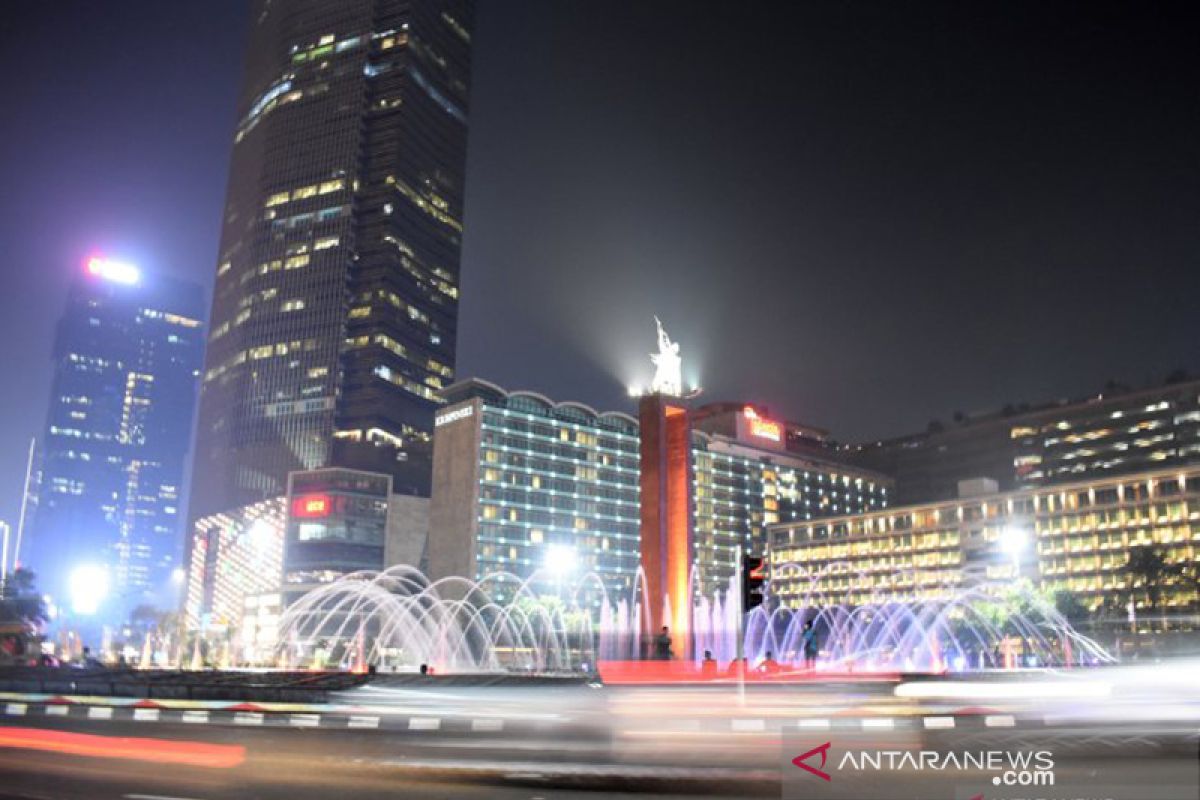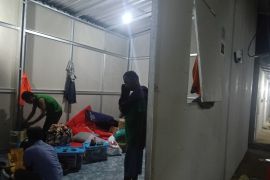Some celestial bodies can still be observed, such as planets, moons, and bright stars that are still, but for objects that are categorized as deep sky objects, objects that are quite dim, in plain view, are hard to seeJakarta (ANTARA) - "Little stars in the high sky, very much decorate the sky," some lyrics of the song "Bintang Kecil" by Meinar Louis no longer hold relevance for children today.
Tools that collect electromagnetic radiation and form images of objects observed, or often called telescopes, are now needed to observe the stars once visible to the naked eye.
Ronny Syamara, one of the Planetarium astronomers in Jakarta, was among those echoing their concern over the loss of stars in the Jakarta sky.
"Some celestial bodies can still be observed, such as planets, moons, and bright stars that are still, but for objects that are categorized as deep sky objects, objects that are quite dim, in plain view, are hard to see," Syamara stated with a hint of angst.
"Jakarta experiences quite severe conditions, in terms of the quality of light," the man stated at the living room of the Jakarta Planetarium office, Taman Ismail Marzuki, Central Jakarta.
Artificial light sources that contribute to light pollution comprise light trespass or spill light that accidentally enters homes and clutter or artificial light in cities.
"Garden lights and sidewalk lights that do not point up or do not have a hood are one of the causes of light pollution," Ronny pointed out.
Ronny further highlighted the fact that lit-up billboards too exacerbated light pollution in Jakarta.
In addition, an artificial light source that contributes to light pollution is glare that causes vision discomfort, and sky glow or light emitted directly into the atmosphere that forms a dome covering the sky at night.
This sky glow obstructs the vision of urban residents from seeing stars in the night sky.
Head of the National Aeronautics and Space Agency (LAPAN) Thomas Djamaluddin confirmed that the city of Jakarta, especially Central Jakarta, which was the location of the Planetarium, received abundant light.
"Just a bright planet that can be seen, stars are only partially visible," Djamaluddin noted.
Impact of light pollution
Djamaluddin noted that other research indicated a change in sleep patterns. Some people, who are increasingly sensitive to light conditions, can experience sleep disorders.
Sleep health practitioner Dr. Andreas Prasadja RPSGT confirmed that sleep disorders are related to light. Many adults and young people experience delayed sleep disorder.
"Not being able to sleep, only the hours of sleep shift. What is the cause? Many things, one of them being light," Prasadja explained.
Prasadja highlighted the important role of light as a central regulator of the body's biological rhythms, including wake and sleep cycles, circadian rhythms, and suprachiasmatic nucleus that are sensitive to light.
"As soon as sleep is disturbed, from the tip of the hair to the legs get affected," the sleep specialist, or better known as sleep physician, noted.
Prasadja pointed to disorders in the cardiovascular system to that of blood vessels resulting from disturbed sleep patterns. Moreover, the body's immunity gets compromised as a result of disturbances in sleep patterns.
"This becomes a natural killer, as human endurance is only high during sleep," he stated
Moreover, in more complex cases, disruption of sleep patterns can cause metabolic disorder in humans that results in diabetes and obesity.
Prasadja further explained that disturbances in sleep patterns can increase the risk of breast cancer in women.
"The risk for cancer increases 36 percent in women, who sleep less than seven hours a day," he stated.
Beyond the impact on humans, ecologist Franz Hlker from Germany's Leibniz-Institute for Freshwater Ecology and Inland Fisheries (IGB) remarked that light pollution had ecological consequences.
"In addition to threatening 30 percent of nocturnal vertebrates and over 60 percent of nocturnal invertebrates, artificial light also affects plants and microorganisms," Hlker pointed out.
"This threatens biodiversity through changes in nighttime habits, such as reproductive patterns and migration, among several different species including insects, amphibians, fish, birds, bats, and other animals," he added.
Prevent light pollution
To raise public awareness on light pollution, the Planetarium Jakarta has currently implemented an education program for elementary schools.
"We will tell you why it is now difficult to see stars in the sky," Ronny noted while shedding some light on the activity.
"This year, we will start in April. Each year, there can be 40 schools. Our target is elementary school for gaining a broader understanding since an early age," he explained.
The steps of the Planetarium Jakarta are in accordance with Law on the Territory of Chapter XIV, article 90, paragraph 4, stipulating that the community is also responsible for maintaining order, safety, and security of space activities.
However, the law does not appear to be supported by the regional government. This is since there are no regional regulations or governor regulations governing space issues, especially light pollution.
Meanwhile, to mark the Law on Space, established on August 6, 2013, LAPAN has been campaigning for the Dark Sky Night movement.
"It does not mean that there should not be lights, but the Dark Sky Night minimizes scattered light up," Thomas pointed out.
He noted that this activity was conducted to raise public awareness of the existence of light pollution as well as to embrace the relevant agencies.
"This campaign is general in nature. Indeed, so far, it is still an enthusiastic astronomy community, but we want to build public awareness first. When it starts to increase, approaching government agencies becomes easier," Thomas surmised.
Editor: Rahmad Nasution
Copyright © ANTARA 2019












